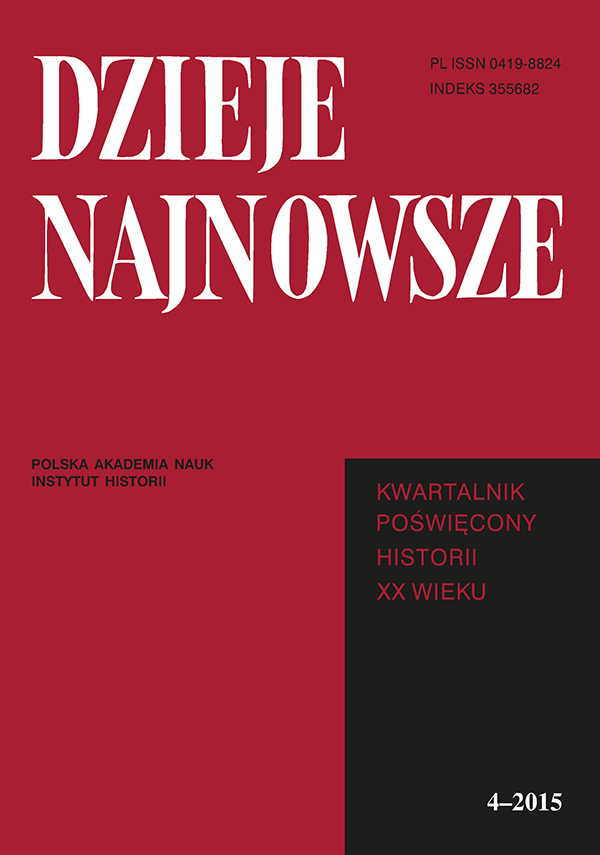Koncepcja władzy i spór o elitę obozu piłsudczykowskiego w latach 1935–1939. Zarys zagadnienia
DOI:
https://doi.org/10.12775/DN.2015.4.03Abstract
The Conception of Power and the Dispute about the Elite of the Piłsudskite Camp in 1935–1939. An Outline of the ProblemThe rule of the Piłsudskites, owing to the power takeover by Józef Piłsudski, lasted until September 1939. During that time they not only governed the State but they also tried to develop a coherent concept of the exercise of power. Thanks to Walery Sławek an assumption was adopted that government would be entrusted with the elite of the Piłsudskite camp. This process was initiated in the 1935 Constitution and continued after the death of the Commandant [i.e. Józef Piłsudski]. Having set up the Camp of National Unity (OZN) in February 1937, the Piłsudskites assumed that it would strive to monopolize Poland’s political, social and cultural life on the basis of the conception of the power elite as a group of predestined persons who had been approved by J. Piłsudski. However, the elitist system was never completely built, which was the effect of first of all not having institutionalized it. There were several reasons for this state of affairs. Undoubtedly, disintegration and intra–camp conflicts were not conducive to the implementation of the grand design, but not without significance was also the resistance on the part of the adversaries, who saw in the elite and in its concept of elitarianism (elitism) the dangers for Poland and to her society. It also remains an open issue how we assess the condition of the Piłsudskite elite and their accomplishments in governing the State, in the conception of the exercise of power, and in Poland’s preparedness for a war against Germany.
Downloads
Veröffentlicht
Zitationsvorschlag
Ausgabe
Rubrik
Stats
Number of views and downloads: 554
Number of citations: 0



